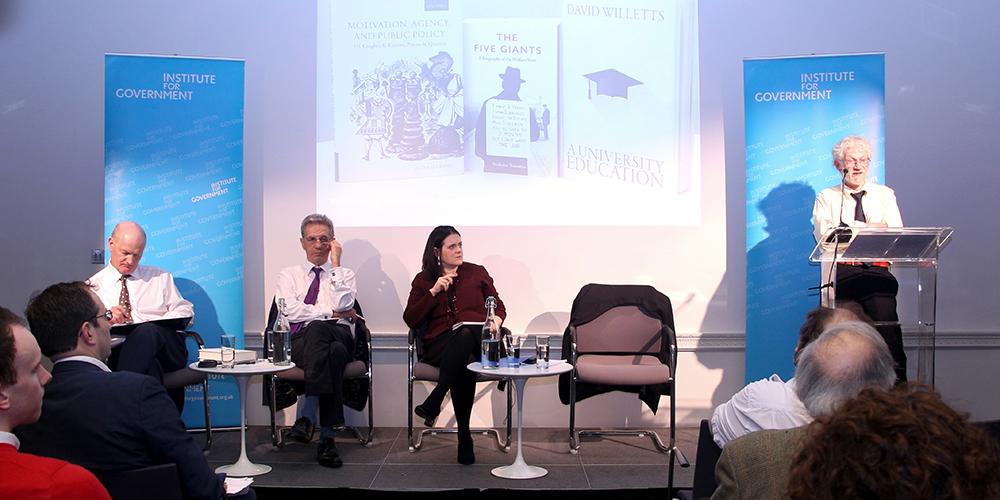Carillion collapse highlights the need to change the way we manage public services
A future with no private sector involvement in delivering publicly-funded services is hard to imagine.
We can’t completely abandon outsourcing in reaction to the Carllion collapse, but the way we manage public services has to change, says Dr Emily Andrews.

The Carillion debacle has brought new energy to calls for government to abandon public service outsourcing. It has revealed some of the major flaws in the way private sector providers are used.
Working out how to make markets work for the public – as both taxpayers and services users – is an urgent necessity, and a critical question for the Institute for Government. There is much more than public embarrassment at stake – when private contractors fail, service users and the public purse both suffer.
Insourcing will not solve everything
Despite the problems with outsourcing, whole-scale insourcing is not necessarily the answer to the question of how we should run and improve public services in challenging times.
That was the message which emerged when three panellists – historian and journalist Nick Timmins, former Blair policy advisor Julian Le Grand, and former Universities Minister David Willetts – brought to bear their combined decades of experience watching or doing public service reform at our event on how we should manage public services.
We’re already moving away from public service markets
Carillion may be the latest incident to hit the headlines but, argued Nick Timmins, there has already been a broader loss of faith in the power of public service markets over the last five years.
This doesn’t just mean rising calls from the Opposition for sweeping insourcing and renationalisation. Far from solidifying the age of competition as it was intended to do, Andrew Lansley’s 2012 Health and Social Care Act was apparently its high watermark. The NHS has not embraced Lansley’s competitive reforms. Instead, health and social care leaders are having to work around them in order to better integrate their services.
But if the public, politicians and policy makers are starting to re-examine the benefits of quasi-markets, there is nothing clearly lined up to replace it.
What comes after Carillion?
Julian Le Grand – an architect of choice and competition models under New Labour – argued that they had it right all along. The spectacular failure of Carillion, he said, masks the “stories of modest success” in outsourcing.
Competition, he argued, could improve standards even in times of austerity – if it’s allowed to work properly. When asked about the dangers of large-scale providers dominating the market, Le Grand said he saw promise in new non-profit models such as Public Service Mutuals. But David Willetts argued that the civil service capacity needed to manage those small contracts is too great – in his experience, an intermediary was necessary.
For Willetts, a newly minted technophile, big data points to new solutions. As more public services go online, rich new data sets become available. The information recorded as we interact with public services online allows for a much more sophisticated understanding of how people use them, and much more responsive policy making. In the end, the person best placed to deliver those services will be whoever the public trusts with their data.
Meanwhile, Nick Timmins saw potential for a return to the ‘trust’ model which characterised the early welfare state. The autonomy of professionals is no longer sacrosanct. But models which empower clinicians to improve performance in their own back yard, putting the data into their hands, are starting to bear real fruit in the NHS. "Professional pride" can make as much difference as "targets and terror".
What next for public service markets
Public service markets are inserted into inappropriate settings – entering into areas where there is no conceivable market. They tax the capacity and capability of the civil service. And they are dominated by too-big-to fail organisations.
But a future with no private sector involvement in delivering publicly-funded services is hard to imagine. Now, we need a better answer to how and where we can make these models work.
Watch the full event
Find out more about our event Managing public services: do we still know how to do it?
- Topic
- Procurement Public services
- Keywords
- Outsourcing
- Publisher
- Institute for Government